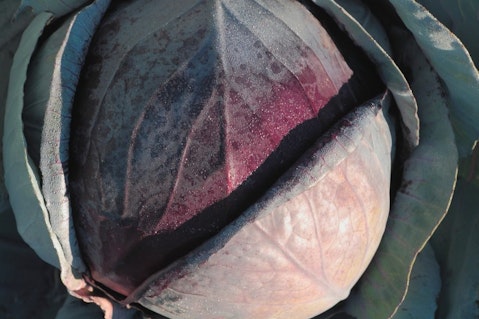8. Sauerkraut
Serving size: 100 g
Total fiber in grams: 2.9
Health Benefits:
Cabbage, whole or cut in pieces and then fermented is known as sauerkraut – typical dish for winter months across Central and Eastern Europe. And why it is so beneficial? It combines cabbage, one of the oldest and healthiest foods we eat with fermentation, one of the oldest ways we preserve food for centuries. As a result of sauerkraut’s fermentation process many beneficial probiotics are produced. In the cold winter months, but in general as well, they offer support for your immune and endocrine system, digestive tract and cognitive function. Cabbage contains vitamin C, vitamin B complex, beta carotene, lactic acid bacteria, calcium, iron, and potassium, all essential for the liveliness of your spirit and your mind, the health of the bones and production of red blood cells.
Even though it is full of vitamins and minerals in any form, red leaves cabbage contains more beneficial ingredients than the green one. Since it is rich in water and fibers, sauerkraut is especially recommended for people who deal with the weight problems and those who have problems with digestion.






